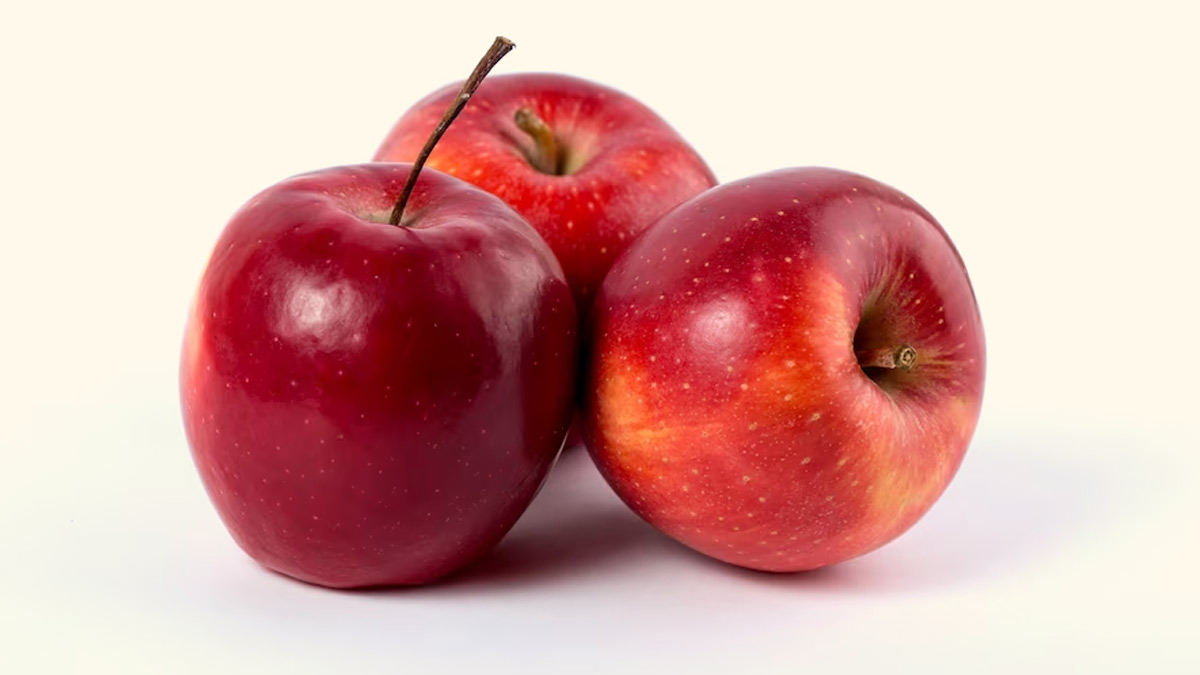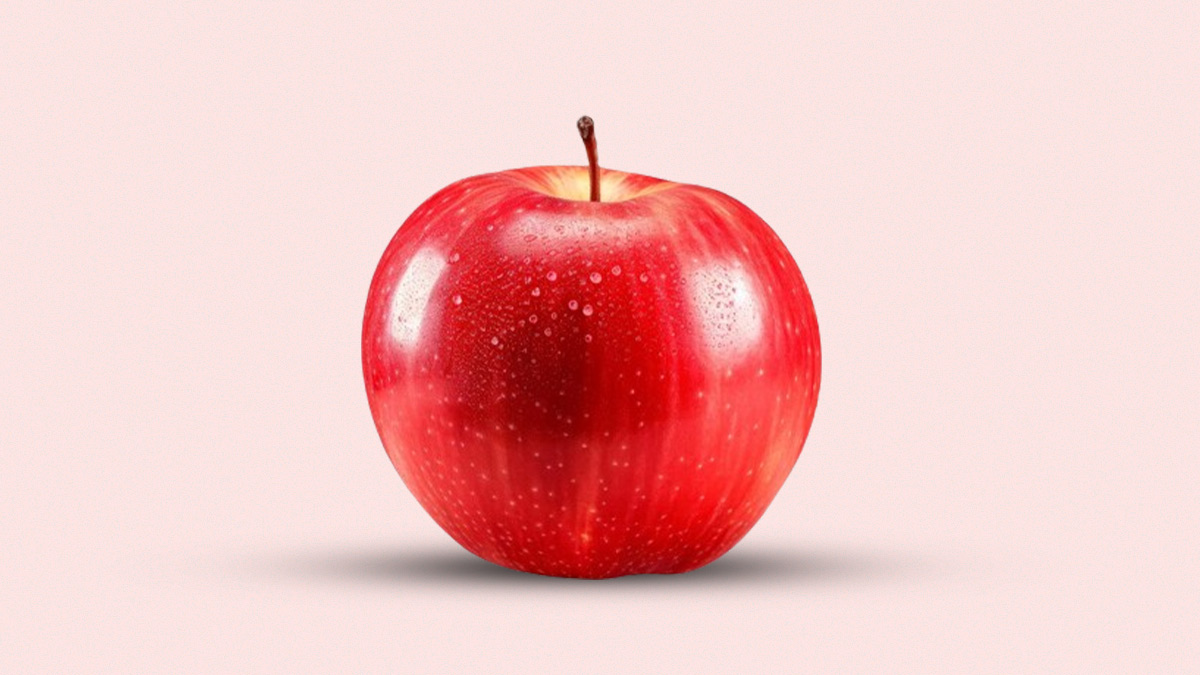
Apples are one of the world's most popular and commonly consumed fruits, frequently associated with health and nutrition. However, there are other myths and misconceptions about apples, ranging from their health advantages to their affects on the body. Let's refute some typical apple myths.
Table of Content:-
Myth 1: "An Apple a Day Keeps the Doctor Away"
While apples are nutritious and can contribute to a healthy diet, they are not a cure-all. The phrase suggests that eating an apple daily will prevent all health problems, but a single food item cannot guarantee overall health.

Also read: What Happens When You Have Apple Cider Vinegar With Chia Seeds On Empty Stomach
Truth:
Nutritional Benefits: Apples are rich in fiber, vitamins, and antioxidants, which can support overall health.
Balanced Diet: A well-rounded diet, including various fruits, vegetables, whole grains, lean proteins, and healthy fats, is necessary for optimal health.
Medical Care: Regular check-ups and a holistic approach to health are essential; no single fruit can replace professional medical advice and treatment.
Myth 2: "All Apples Are Created Equal"
Not all apples provide the same nutritional benefits. Different varieties of apples have varying levels of vitamins, minerals, fiber, and antioxidants.
Truth:
Variety Differences: For example, Granny Smith apples tend to have lower sugar content and higher fiber compared to sweeter varieties like Fuji or Gala.
Nutritional Content: The color and type of apple can influence its nutritional profile. Red apples often have more anthocyanins, while green apples may have more fiber and slightly fewer calories.
Myth 3: "Eating Apple Seeds is Poisonous"
Debunked:
Apple seeds contain amygdalin, which can release cyanide when metabolized. However, the amount in a few seeds is generally not harmful.
Truth:
Cyanide Release: Large quantities of apple seeds could be dangerous if consumed all at once, but small amounts from accidentally ingesting seeds while eating an apple are not a health concern.
Practical Advice: It’s best to avoid eating the seeds intentionally, but there is no need to panic if you swallow a few accidentally.
Myth 4: "Apples Are High in Sugar and Should Be Avoided"
Debunked:
While apples do contain natural sugars, they also provide essential nutrients and fiber, making them a healthy snack choice.
Truth:
Natural Sugars: The sugars in apples are naturally occurring and come with fiber, vitamins, and antioxidants that help regulate blood sugar levels.
Balanced Impact: The fiber in apples slows the absorption of sugar, preventing spikes in blood glucose.
Moderation: Like all fruits, apples should be eaten in moderation as part of a balanced diet.
Myth 5: "Only Organic Apples Are Healthy"
Debunked:
Both organic and conventionally grown apples can be healthy. The key difference lies in the farming practices, not the nutritional content of the fruit.
Truth:
Pesticide Residue: Organic apples are grown without synthetic pesticides, which can be a concern for some consumers. Washing and peeling conventionally grown apples can reduce pesticide residue.
Nutritional Value: Both organic and non-organic apples provide similar nutritional benefits.
Informed Choice: The decision to choose organic should be based on personal preference and budget considerations rather than a significant nutritional difference.
Myth 6: "Apple Juice is as Healthy as Whole Apples"
Debunked:
Apple juice, especially when processed and sweetened, does not offer the same health benefits as whole apples.
Truth:
Fiber Content: Whole apples contain fiber, which is largely lost in the juicing process.
Sugar Concentration: Apple juice can be high in sugar and calories, often lacking the fiber that helps moderate blood sugar levels.
Best Choice: Eating whole apples is generally better for health than consuming apple juice.
Myth 7: "Apples Cause Weight Gain"
Debunked:
Apples, when consumed as part of a balanced diet, do not cause weight gain. They can actually be a part of a healthy weight management plan.

Also read: Two Apples A Day, Keeps Cholesterol Away: Research
Truth:
Low Calorie Density: Apples are low in calories and high in fiber, making them filling and helping to control hunger.
Healthy Snacking: They can be a nutritious alternative to high-calorie snacks, aiding in weight management.
Apples are a nutritious and versatile fruit, but it is important to separate fact from fiction when it comes to their health benefits and potential risks. While they offer numerous health advantages, they are most effective as part of a balanced and varied diet. By understanding the truths behind these common myths, you can make more informed decisions about incorporating apples into your diet for optimal health.
Also watch this video
How we keep this article up to date:
We work with experts and keep a close eye on the latest in health and wellness. Whenever there is a new research or helpful information, we update our articles with accurate and useful advice.
Current Version